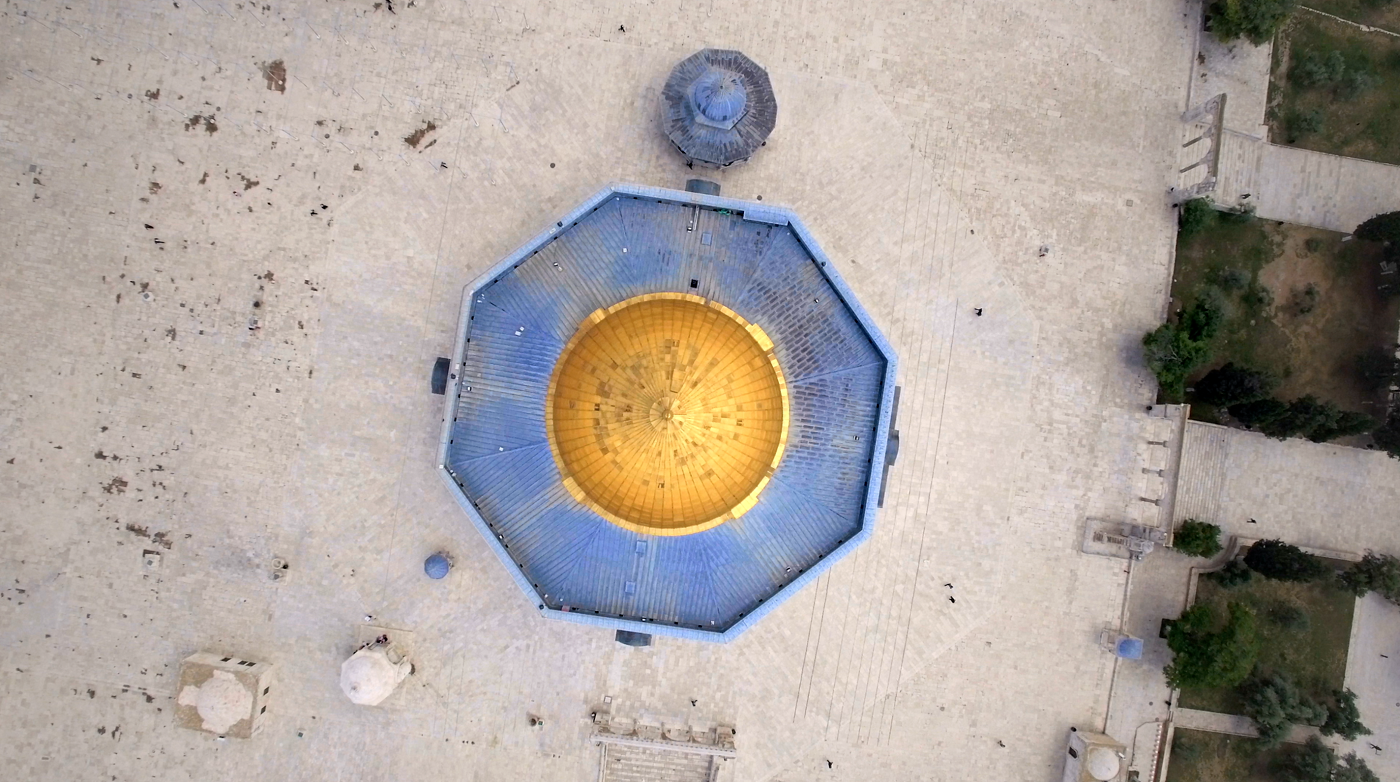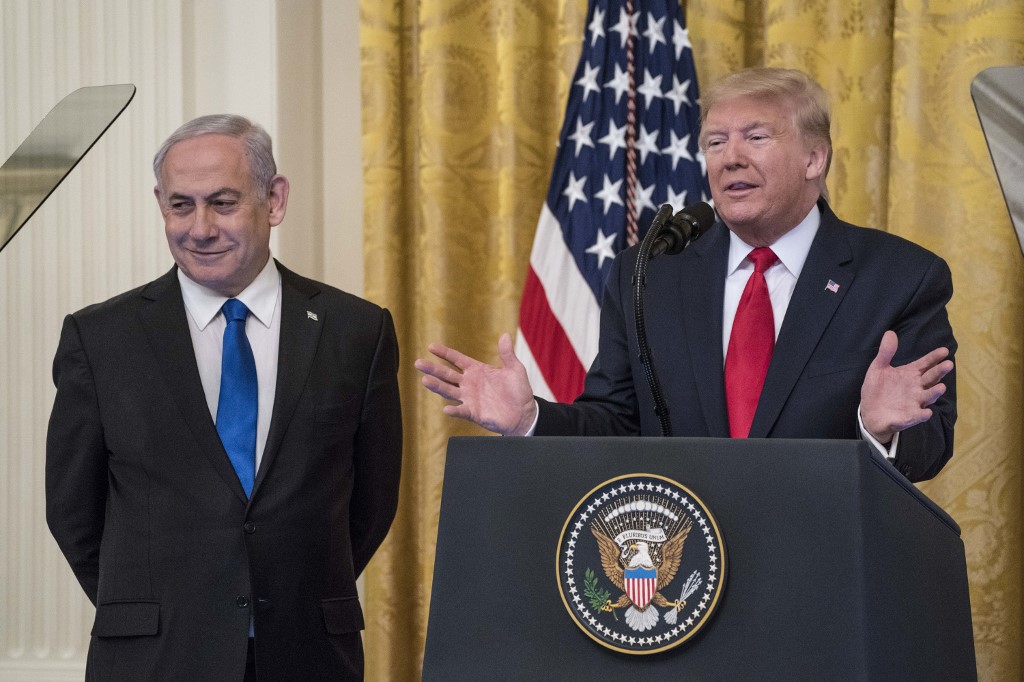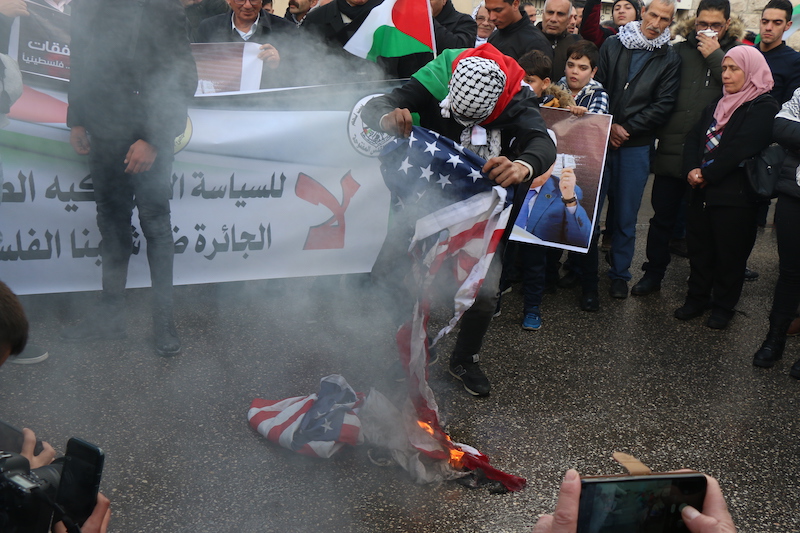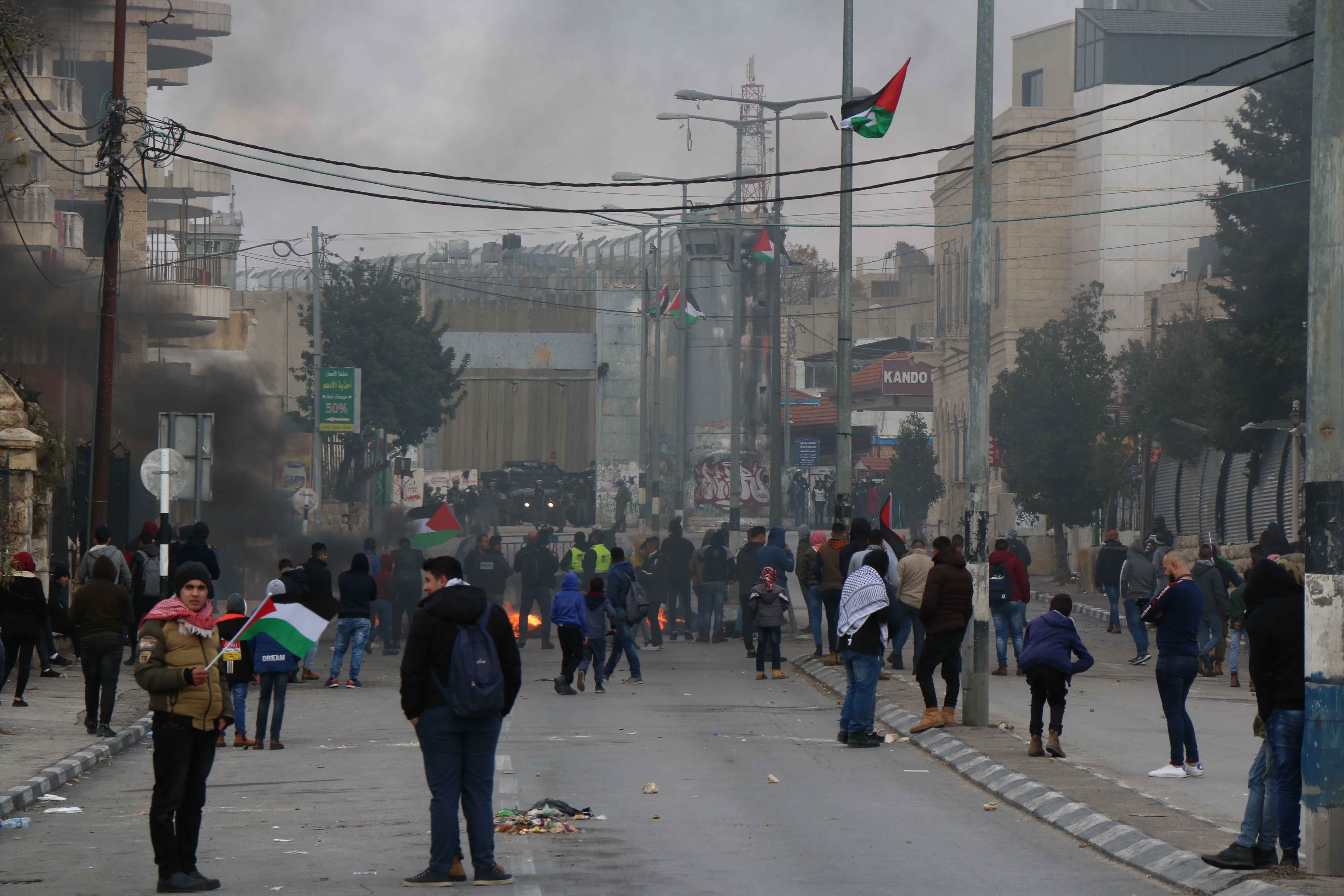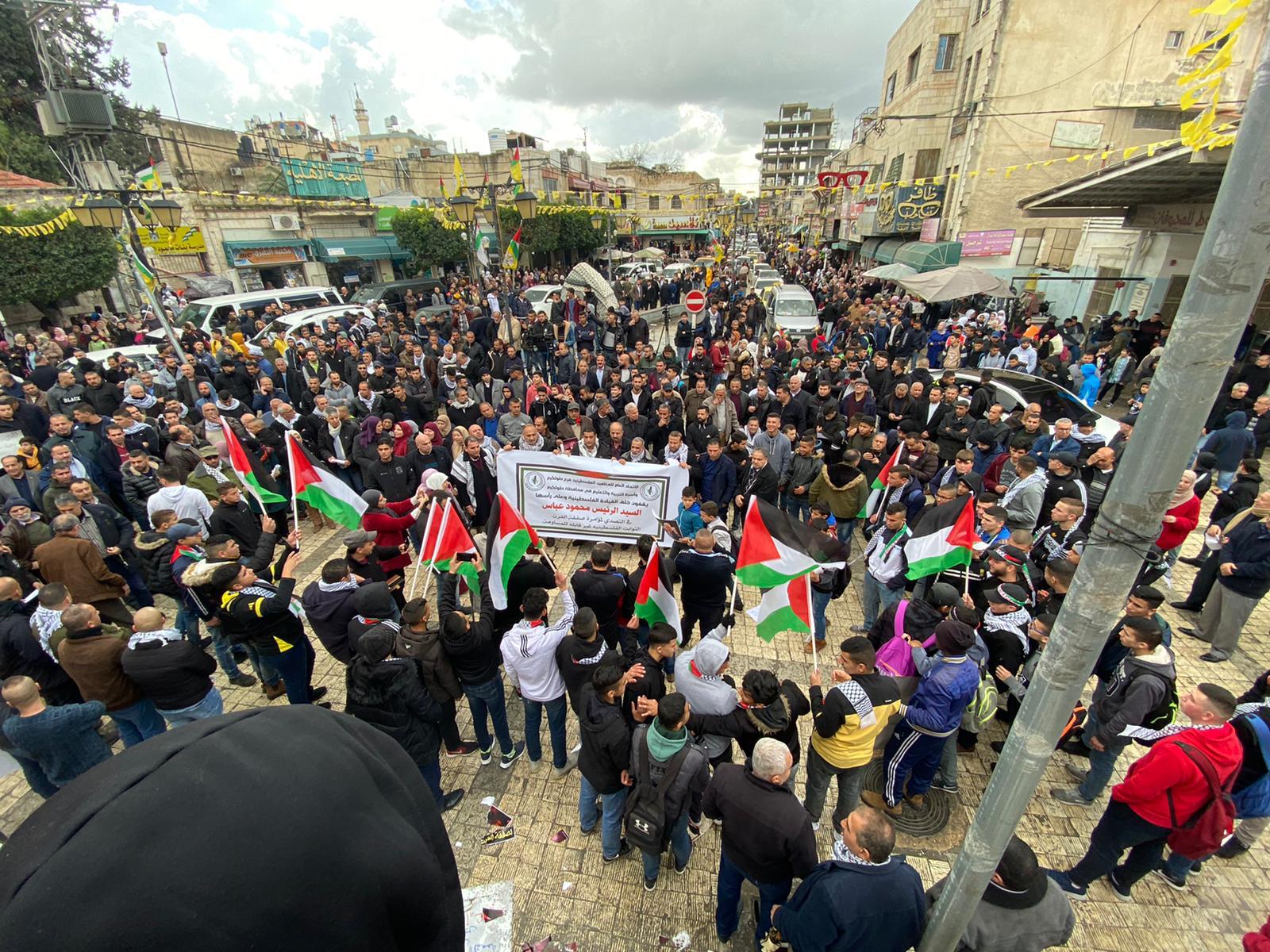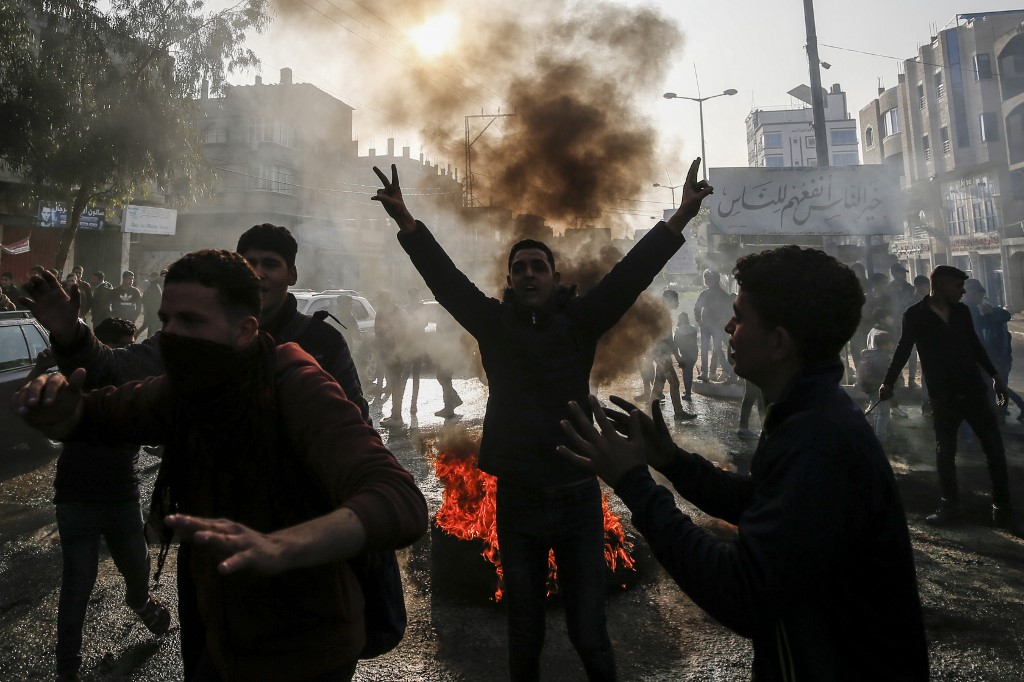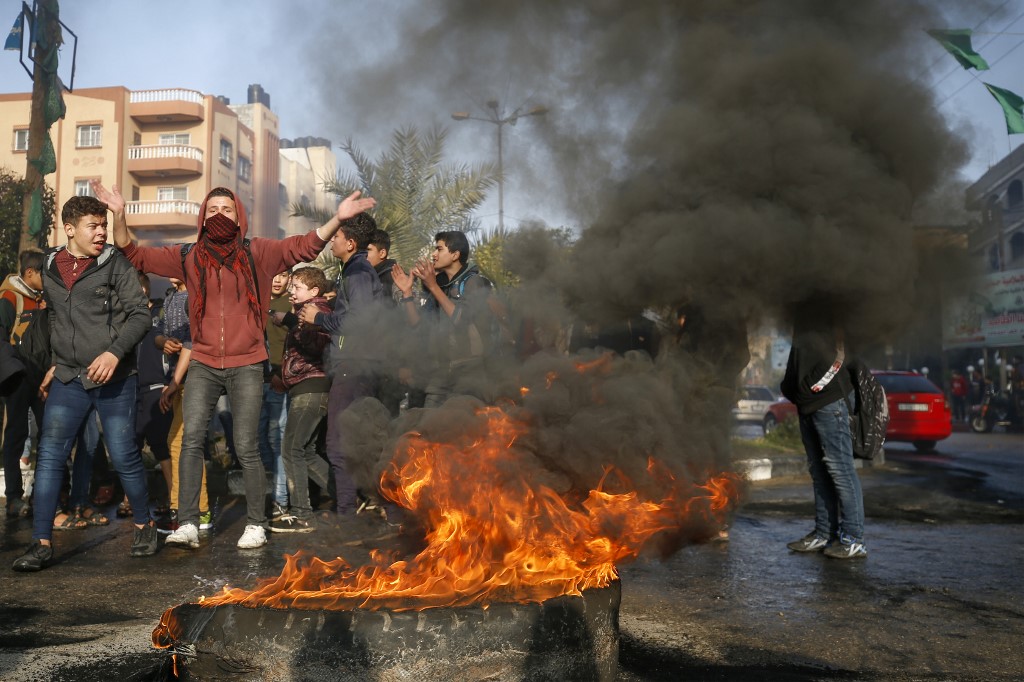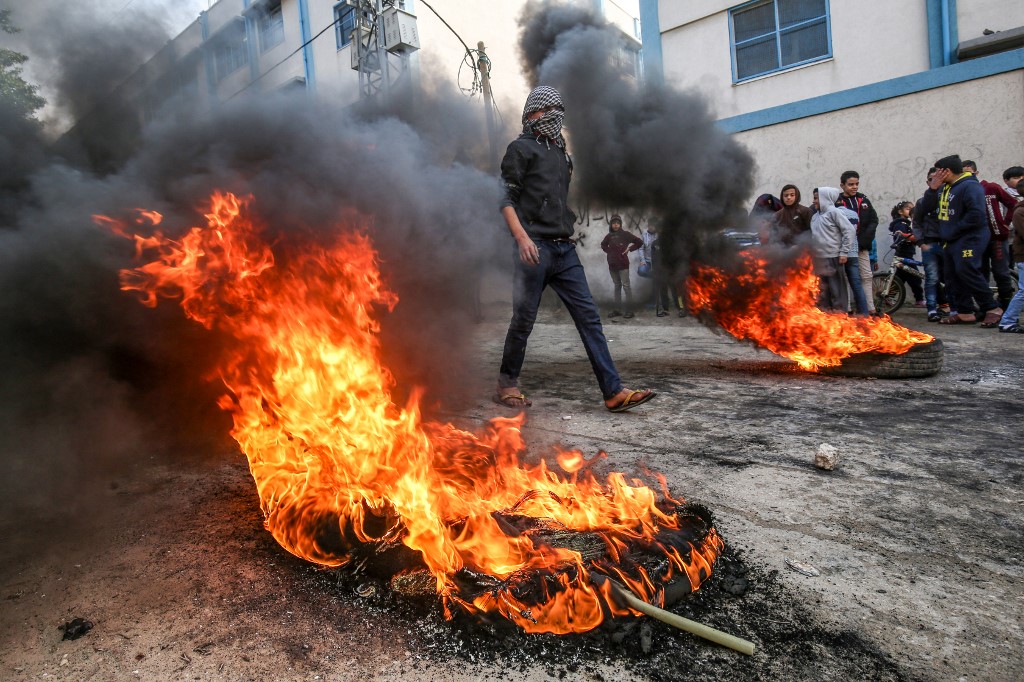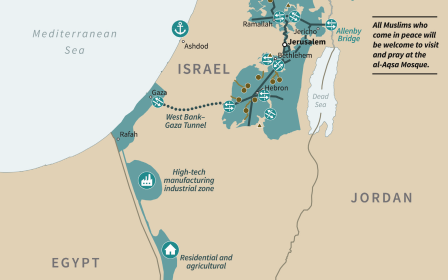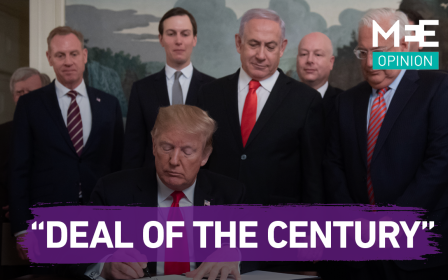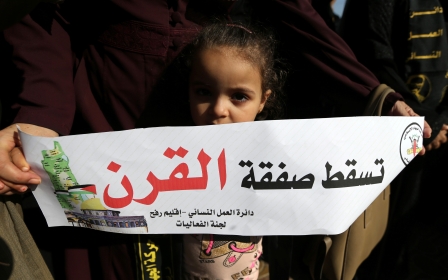Live: Israel cracks down on Trump plan protests
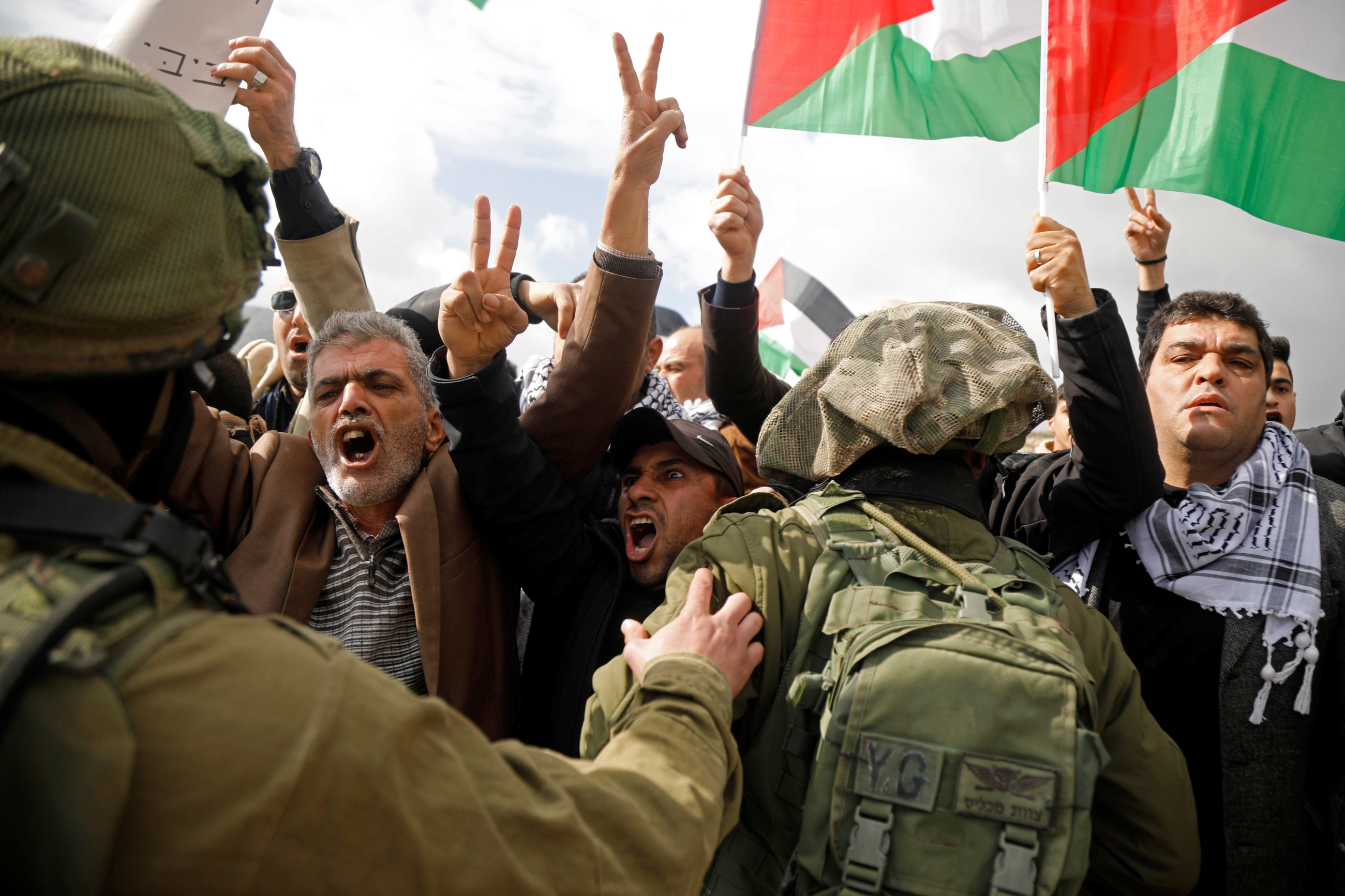
Mises à jour du direct
Morocco 'appreciates' the US plan to end the Israel-Palestinie conflict, its foreign ministry said in a statement on Wednesday, but added that "acceptance by the parties... is... fundamental to the implementation and sustainability of the plan".
Kuwait said it "highly appreciates" the US efforts to end the conflict, its foreign ministry said on Wednesday.
The statement, cited by the state news agency, reiterated Kuwait's commitment to an independent Palestinian state based on its borders before the Israeli occupation of the West Bank and East Jerusalem in 1967.
An Egyptian official has said that a foreign ministry statement released shortly after Donald Trump unveiled his "deal of the century" was watered down after it was sent to President Abdel Fattah el-Sisi's office for approval.
The source told Mada Masr that the original draft text mentioned the establishment of a "Palestinian state on territories occupied in 1967, with East Jerusalem as its capital" - a phrase that was omitted in the final version.
The final statement also omitted a phrase from the initial draft that stipulated the "need for Israel to realise that achieving peace in the region will not happen without guaranteeing the legitimate rights of the Palestinian people," the source said.
Instead, the final statement used slightly less direct phrasing that pointed to the importance of "restoring to the Palestinian people their full legitimate rights through the establishment of a sovereign independent state in the Palestinian occupied territories in accordance with international legitimacy and resolutions."
The Al-Aqsa mosque compound has played a prominent role in previous peace talks between the Israeli and Palestinian political leadership.
Trump's plan calls for the following:
1) "People of every faith" should be permitted to pray in the Al-Aqsa mosque compound - raising questions on whether incursion of Israeli settlers in the area will be normalised, in violation of existing regulations.
2) Jerusalem should remain under the same "governance regimes that exist today" while remaining under Israel's full control of Jerusalem.
3) Muslims who "come in peace" will be welcome to visit the Al-Aqsa mosque compound. Worshippers can visit the mosque via a "special tourism zone" in a future Palestinian state from Atarot - a few kilometres north of Jerusalem.
Trump said a Palestinian state can be established when the Palestinian Authority leadership does the following:
1) Accept Israel's new borders and recognise it as the Jewish state.
2) Fully demilitarise the occupied Palestinian territories
3) Remove Hamas from power in the besieged Gaza Strip.
4) Agree to Israeli security oversight on all its territory until Israel deems it ready for withdrawal.
Read more here on the facts and figures behind Trump's new deal.
Read more here on the facts and figures behind Trump's new deal.
MEE's Washington correspondent Sheren Khalel takes us through the eight key moments of US support for Israel before Trump's deal of the century.
This includes the US recognising Israeli statehood in 1948 to using its veto power in the United Nations for the first time to protect Israeli from criticism. Read more here.
Middle East Eye's editor-in-chief David Hearst describes Trump's plan for a Palestinian state as an "MRI scan of the brain of an Alzheimer’s victim. The Palestinian state has been entirely eaten away." Read more here.
British Palestinian academic Azzam Tamimi describes Trump's announcement as "taking credit for recognising ...theft [of Palestinian land] perpetrated by the Zionists over the years since 1967."
Hundreds of protestors in the West Bank city of Bethlehem marched against US President Donald Trump's plan for Israel and Palestine.
Images taken by photo-journalist Akram al Waarah showed demonstrators burning photos of Trump and marching towards an Israeli military base located next to Bethlehem.
Israeli soldiers fired tear gas live ammunition at Palestinian protestors while other demonstrators began burning tyres and throwing stones at the military base.
US President Donald Trump's Palestine plan unified the different political parties in Turkey's parliament for the first time since 2016 in their opposition to the so-called "deal of the century."
The parties, including the pro-Kurdish HDP, signed a joint declaration condemning Trump's plans.
Israeli soldiers had wounded at least 41 Palestinians protesting Trump's deal across the West Bank, according to the Palestinian Red Cross.
France said it welcomed US President Donald Trump's efforts to broker a deal between Israel and Palestine.
The French foreign minister, however, noted in its statement that it would be assessing the deal "closely".
UK Prime Minister Boris Johnson defended Trump's plan and said it guaranteed a two-state solution during prime minister's questions on Wednesday.
Responding to a question from opposition leader Jeremy Corbyn, Johnson urged him to reach out to Palestinian President Mahmoud Abbas to engage in talks.
Britain is one of a handful of western countries to have come out in support of Trump's proposal.
Bahrain confirmed in a statement on Wednesday that it supported US President Donald Trump's "efforts" to broker a deal between the Israelis and Palestinians.
Manama thanked the United States for its work on the plan and urged the Israeli and Palestinian sides to start direct negotiations under U.S. sponsorship.
Trump personally thanked Bahrain for sending its ambassador to attend his big reveal of the controversial plan during a speech in the White House on Tuesday.
Palestinians in Khan Younis in southern Gaza Strip continued protests against Trump's middle east plan.


